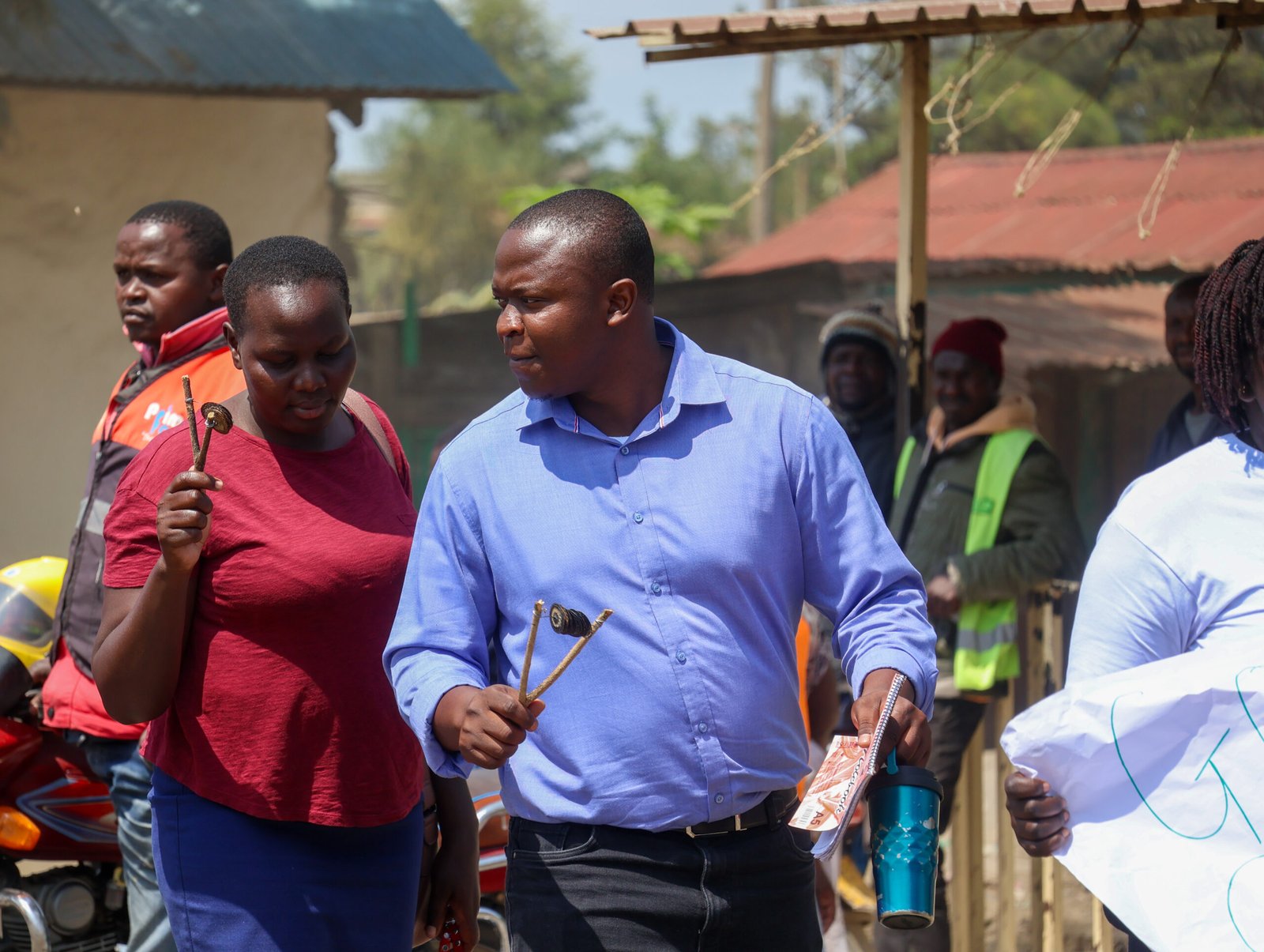In the vibrant intersection of art, advocacy, and accountability, Participatory Education Theatre (PET) has emerged as a dynamic tool for transforming communities from within, one performance at a time.
For Timothy Namitego, an exchange fellow from Uganda’s Justice Access Point under the Young African Leaders Exchange Program supported by the Norwegian Agency for Exchange Cooperation (Norec), his experience in Nakuru Town West Sub County, offered more than cultural immersion; it became a masterclass in how theatre can catalyze peace, amplify youth voices, and foster mutual accountability between citizens and institutions.
After attending a PET session facilitated by MIDRIFT HURINET, Timothy witnessed firsthand how drama transcends entertainment to become a platform for confronting entrenched social issues, from conflict resolution to equitable governance.
In this creative space, youth are not passive spectators but active architects of dialogue, challenging injustices, proposing solutions, and positioning themselves as trusted agents of peace and security in their communities.
MIDRIFT HURINET has transformed the stage into a living arena for dialogue, using Participatory Education Theatre (PET) as a dynamic tool for youth advocacy on accountability and social justice.
Here, the scripts are not confined to paper; they are written in the lived experiences of the community and performed with raw authenticity by young people determined to challenge the status quo.
Through PET, issues such as corruption, police accountability, gender-based violence, and resource mismanagement are not merely discussed but embodied, allowing audiences to confront uncomfortable truths and explore alternative solutions in real time.
This approach transcends the limits of conventional meetings, infusing advocacy with creativity, empathy, and critical thinking.
For the youth, it is a platform for civic courage, a rehearsal for real-life action, and a bridge for cross-cultural learning that repositions them as credible agents of peace and accountability in their neighborhoods.
In this way, PET becomes both a mirror and a catalyst, reflecting societal challenges while inspiring communities to imagine and act on better possibilities.
Namitego shared that Ugandan youth are increasingly using diverse and creative approaches to raise awareness about social and environmental issues. Through community engagement, technology, and artistic expression, they have amplified their voices and mobilized support for positive change.
“Digital platforms and media engagement have become powerful tools for increasing youth participation and awareness. By creating and sharing content such as videos, infographics, and articles, young people can educate their peers, spark conversations, and mobilize communities around critical issues.
Technology has further enhanced this impact, with mobile phone-based applications offering a viable and effective means of improving access to sexual and reproductive health (SRH) information and services. These innovations have made it easier for young people to learn, connect, and make informed decisions about their health.
Youth-led initiatives and organizations have also played a central role in advocacy and awareness. For instance, under the Together for Girls campaign, a group of 10 Youth Champions from Kenya and Uganda was recruited to spread “Every Hour Matters” messages on post-rape care.
These young leaders continue to educate their peers and broader communities on HIV/AIDS relief, girls’ empowerment, and sexual health advocacy, thereby fostering social justice and gender equality. “He added.
From his experience and learnings after attending the Participatory Education Theatre (PET) activities in Nakuru Town West and Nakuru Town East, Namitego said that PET emerges as a powerful and transformative tool for peacebuilding and accountability.
“More than just a creative art form, PET acts as a living dialogue, enabling communities to confront pressing issues such as health, human rights, and environmental protection through an interactive and relatable medium.
By placing youth at the center as creators, performers, and evaluators, PET not only nurtures their leadership skills but also repositions them as agents of accountability in their communities. This participatory approach fosters peer-to-peer learning, bridges intergenerational divides, and inspires collective problem-solving, making it both educational and empowering.
In the context of youth advocacy, PET serves as a vehicle for reshaping narratives around peace and security, grounding discussions in lived realities while fostering empathy and responsibility.
It also highlights the significance of youth exchange programs and cross-cultural learning, as shared experiences between different communities enrich perspectives and amplify their impact.
In this way, PET becomes a space of transformation where creativity meets civic engagement, dialogue fosters trust, and youth step forward as architects of peaceful, inclusive, and accountable societies prepared to confront challenges with innovation and resilience.”
On the best cross-cultural learnings, Ugandan Youth can learn from MIDRIFT HURINET’s innovative use of Participatory Education Theatre (PET) as a civic tool for advancing peace, accountability, and community empowerment, Namitego shared that PET has shown that theatre can break down barriers between citizens and duty bearers, stimulate conversations on sensitive issues such as human rights, governance, and security, and inspire community-driven solutions. For Ugandan youth, adopting such approaches offers a unique opportunity to deepen civic engagement, bridge generational gaps, and reposition themselves as accountable leaders who advocate for justice and inclusivity.
Through youth exchange programs and cross-cultural learning, Ugandan youth can replicate MIDRIFT HURINET’s model to create spaces where diverse voices are heard, conflicts are de-escalated through dialogue, and collective ownership of solutions is fostered.
PET encourages critical thinking and equips youth with advocacy, communication, and leadership skills, essentials for navigating complex governance and social issues.
By embracing PET, Ugandan youth can drive transformative change, turning creativity into a civic tool that strengthens peace, accountability, and social cohesion in their communities.
By Jacob Karani


